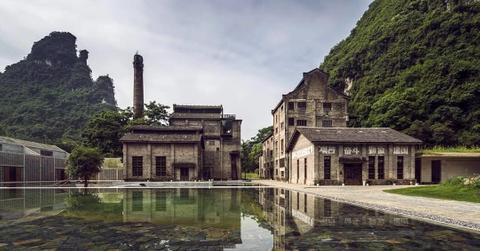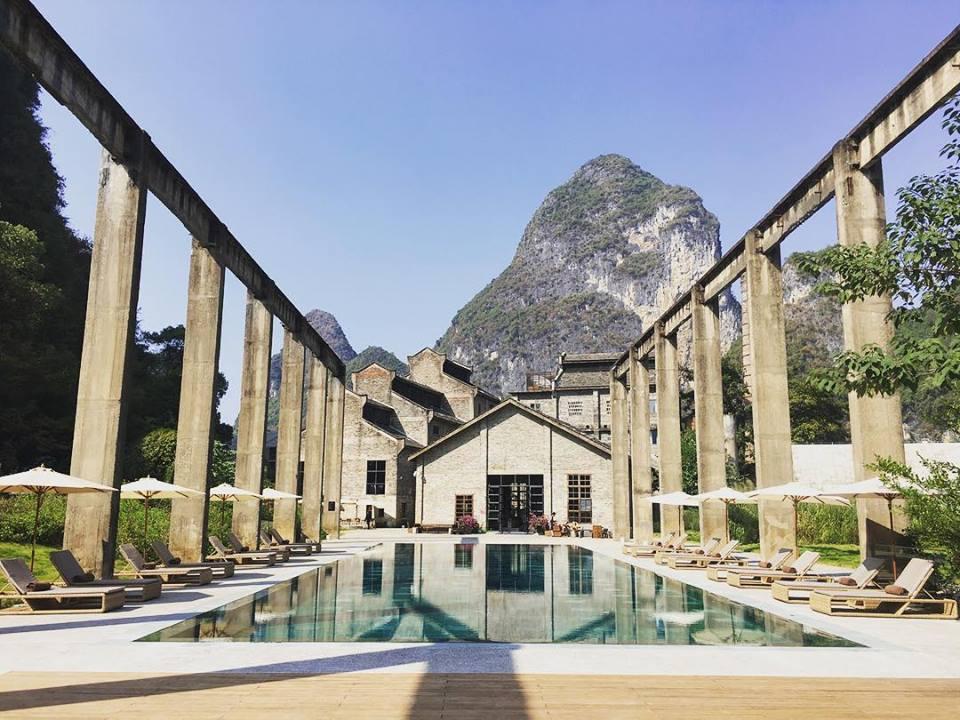Old Chinese Sugar Mill Transforms Into Stunning Luxury Hotel
Abandoned for over a decade, an old sugar refinery was repurposed into a new luxury hotel called Alila Yangshuo. Opened last summer, the complex provides a fusion of history into a modern-day resort with 117 guest rooms and a number of incredible amenities.
Updated May 28 2019, 6:11 p.m. ET
An abandoned sugar mill in China has transformed into a new resort hotel. Vector Architects was able to use much of the refinery’s old structure and repurposed them into the new Alila Yangshuo hotel. The end result is a structure that features natural light and ventilation with beautiful mountain scenery.
The old sugar refinery was located between two mountains in the Guangxi region. Constructed back in the 1960's, it was separated into multiple buildings alongside the Li River used to load sugar cane on boats. Thanks to sugarcane being an unstable crop in China, the old mill was abandoned since 2002.
Old buildings were able to be repurposed into a massive luxury hotel by Vector Architects. They were able to preserve some of the original heritage while adding a number of great amenities, including a cafe, bar, multipurpose hall, library, and an outdoor pool. The pool location features a sunken plaza and old steel columns that were in the sugarcane loading area.
Next to Alila Yangshuo’s amenities and its pool complex is the main guestroom building, the Sugar House Retreat. This features luxury rooms with their own balconies to provide breathtaking scenery from the surrounding mountains. A Garden Townhouse includes suites that are next to ponds and bamboo gardens. There are 117 total guestrooms for travelers to stay at.
Most of the luxury hotel is created with a combination of stone and bamboo. A number of pathways that connect everything together are open to provide sunlight and natural airflow throughout the complex. It emulates the experience of exploring local karst mountain caves and still pays respects to the original construction.
"In order to create a sense of consistency, instead of simply copying the old materiality and texture, we try to seek this nuance where we use more contemporary materials and construction methods while retaining the tinge and masonry structure of the old," the architects told Dezeen.
Alila Yangshuo opened up in July 2017, Alila's second property in China. It provides a tourist destination for those that love art and nature, hence the fusion of its history with modern day amenities. Dong Gong, one of the architects for the project, kept the history of the location in mind throughout the entire building process.
“I believe that an architect should be in awe of what is called ‘Tian’ in Chinese or ‘nature’ in Western culture," Gong said in a press release. "This means that when you are on site, you see with your heart and invoke the energy of the site environs to define the form and meaning for your architecture.”

